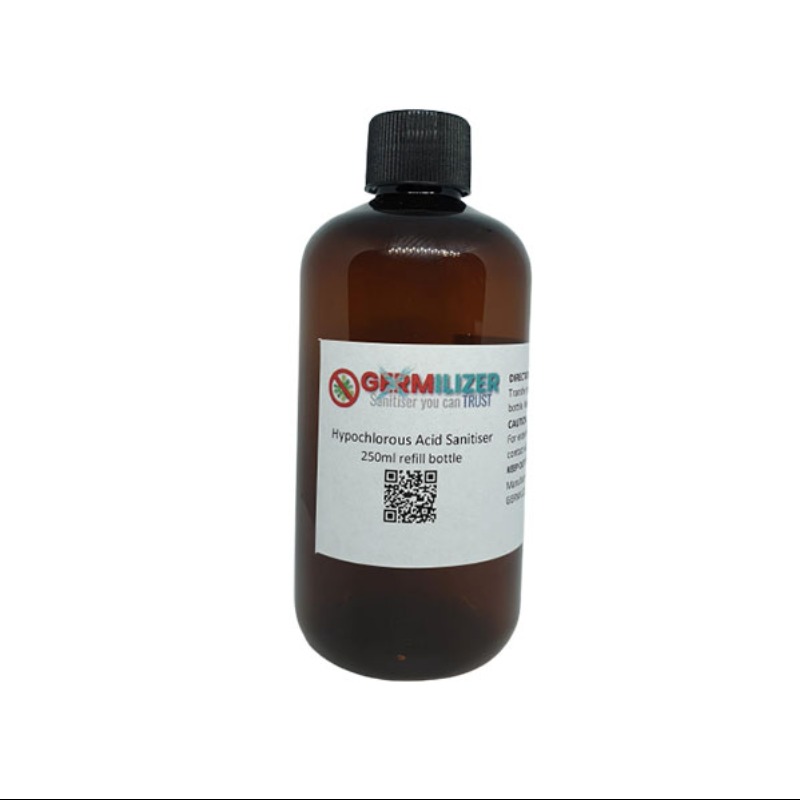
Formation: It is formed when chlorine gas (Cl2) dissolves in water, resulting in a mixture of hypochlorous acid and hydrochloric acid (HCl).
pH Dependency: The efficacy of hypochlorous acid is pH-dependent, with its antimicrobial activity being highest at acidic pH levels. It is most stable and potent in solutions with a pH below 7.
Biological Importance: Hypochlorous acid is produced naturally by white blood cells as part of the immune response to infections. It plays a crucial role in the body's defense against pathogens, contributing to the innate immune system's ability to fight off microbial invaders.
Applications: Due to its powerful disinfecting properties and biocompatibility, hypochlorous acid is used in various applications, including wound care, sanitization of medical equipment, water treatment, and surface disinfection in healthcare, food processing, and household settings.
Safety: While hypochlorous acid is highly effective as a disinfectant, it is generally considered safe for human use when properly diluted. It is non-toxic and non-irritating to the skin and mucous membranes, making it suitable for direct contact with the body.
Environmental Impact: Hypochlorous acid breaks down into harmless byproducts, primarily water (H2O) and chloride ions (Cl-), making it environmentally friendly and sustainable. It decomposes rapidly in the environment, minimizing its impact on ecosystems compared to other chemical disinfectants.
Hypochlorous acid is a highly effective antimicrobial agent, capable of killing a wide range of pathogens including bacteria, viruses, fungi, and spores.
Oxidizing Properties: It acts by oxidizing essential components of microbial cells, disrupting their structure and function, which ultimately leads to their destruction.
Fast-Acting: Hypochlorous acid exhibits rapid antimicrobial activity, making it suitable for quick disinfection and sanitization procedures.
Broad Spectrum: It has a broad spectrum of antimicrobial activity, meaning it is effective against a wide variety of microorganisms, including antibiotic-resistant strains.
pH-Dependent Stability: The stability and effectiveness of hypochlorous acid are influenced by pH. It is most stable and potent at acidic pH levels, typically below pH 7.
Biocompatible: Hypochlorous acid is biocompatible and non-toxic to humans and animals when used in appropriate concentrations, making it safe for various applications including wound care and disinfection of surfaces in healthcare settings.
Environmental Friendliness: Unlike some chemical disinfectants, hypochlorous acid decomposes into harmless byproducts such as water and salt, making it environmentally friendly and sustainable.
Versatile Applications: It finds applications in various sectors including healthcare, food processing, water treatment, and sanitation due to its versatility and efficacy as a disinfectant.
No Review Found.
echem
469
Total Item
Login To Comment